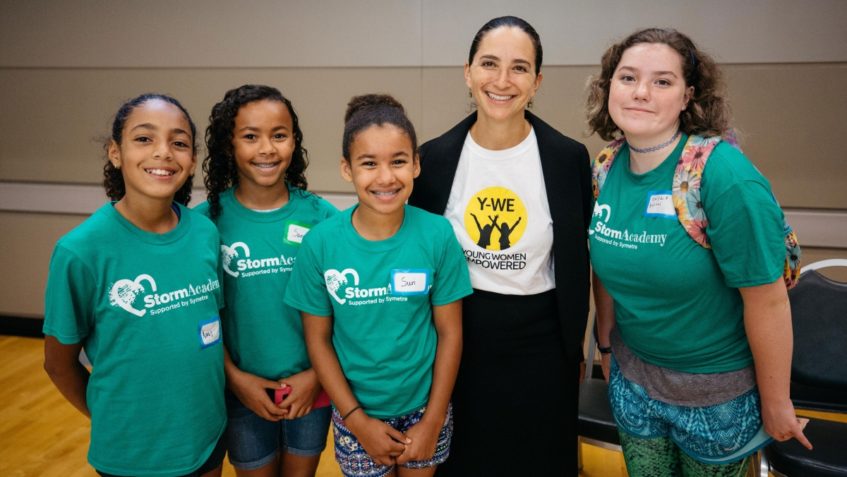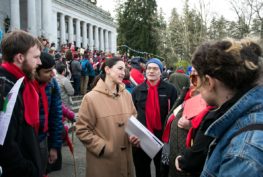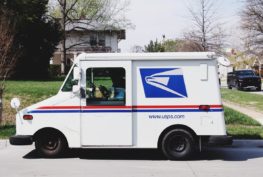Olympia, Oct. 24, 2019
Dear Neighbors,
Today I’d like to take a moment to let you know about state-funded opportunities to save and pay for educational costs at college or technical school. In the time that has passed since I was a high school student seeking scholarships, Washington taxpayers have made significant investments in creating more pathways to save and access higher education opportunities.
All of these opportunities can be hard to navigate, so I hope you find this newsletter helpful. If you do, please feel free to share it with a neighbor.
Saving for College
Watch this short video about programs our state offers to help save money for your child’s education beyond high school.
Find more information about these programs at https://wsac.wa.gov/get.
Ways to Make College More Affordable
Check out these ways you can access affordable college or technical school education, regardless of family income level.
#1: In middle school, enroll in the College Bound Scholarship Program (if eligible).
Seventh and eighth grade students in low-income households or in foster care can apply for the College Bound Scholarship. They must apply by the end of their eighth grade year, commit to graduate from high school with a GPA of at least 2.0, and have no felony convictions.
This four-year scholarship covers tuition at public college rates, books, and certain fees at more than 60 eligible institutions in Washington State.
For more information, visit: https://readysetgrad.wa.gov/college/college-bound-scholarship-program.
#2: In high school, enroll in dual-credit courses.
Dual-credit courses allow you to take college-level courses while you are in high school, with free or low-cost tuition for college credit. Dual-credit opportunities offered by Seattle Public Schools and Renton Public Schools include:
- Advanced Placement (AP)
- International Baccalaureate (IB)
- College in the High School
- Tech Prep/Career & Technical Education (CTE)
- Running Start
For more information, visit: https://www.k12.wa.us/student-success/support-programs/dual-credit-programs.

#3: Apply for need-based state scholarships/grants.
Applying for most state-funded scholarships and grants is usually as easy as completing your Free Application for Federal Student Aid (FAFSA) or the Washington Application for State Financial Aid (WASFA) if you aren’t eligible for federal aid due to your immigration status. Always follow up with the financial aid office at the school you’re planning to attend.
This year the Legislature replaced the State Need Grant with the Washington College Grant, making more families eligible for assistance in paying for education and training beyond high school while also including more higher education programs across the state.
This grant provides financial aid to income-eligible students to study at eligible institutions, which include all public and some private colleges, universities, and career training schools statewide.
The amount of funds a student will receive will depend on income, family size, and the school or program attended.
For more information, visit: https://readysetgrad.wa.gov/college/washington-college-grant.
- Opportunity Grant
The Opportunity Grant helps low-income adults at community colleges or technical schools earn 45 credits, receive a credential, and increase job skills and knowledge.
Eligible students on approved career pathways may receive funds to cover tuition and fees up to 45 credits, as well as an allowance for books and supplies, and individual support services that can include tutoring, career advising, college success education, emergency child care and more.
For more information, visit the website of the community college or technical school you plan to attend.
The Washington State Opportunity Scholarship is offered to eligible low- and middle-income students in Washington pursuing either:
- a bachelor’s degree in a STEM or health care field, or
- a certificate or degree in a high-demand trade, STEM or health care field.
These funds can be used to cover tuition and fees, or other costs like transportation, housing, food, and more.
For eligibility requirements and more information, visit: https://www.waopportunityscholarship.org/students/applicants/.
#4: Look into other scholarship opportunities.
There are several programs designed to help students in foster care, and some will soon expand to include unaccompanied homeless youth and unaccompanied refugee minors. See more information about these programs at: https://readysetgrad.wa.gov/college/passport-foster-youth-promise-program.
The Ready, Set, Grad website can help you identify state, federal and private revenue sources to fund your education. Check out the “Financial Aid 101” page at https://readysetgrad.wa.gov/#college/financial-aid-101.
#5: Obtain a State Work Study position.
Qualifying students from low- and middle- income households can get approved for on-campus or off-campus jobs to support higher education. Work study can build your skills, increase your earnings and reduce your reliance on student loans.
For more information, visit: https://readysetgrad.wa.gov/college/state-work-study.

Financial aid for DREAMers and other undocumented residents
State law allows undocumented, noncitizen residents who cannot complete a Free Application for Federal Student Aid (FAFSA) due to their immigration status to instead apply for state financial aid through the Washington Application for State Financial Aid (WASFA).
Some benefits you could be eligible for include in-state tuition rates, the Washington College Grant, and the College Bound Scholarship. Students who have DACA status (expired or unexpired) may be eligible for other state financial aid as well.
New ways to structure how students pay for higher education
This year, we passed legislation to create the Washington Student Loan Refinancing Program, which will allow qualified borrowers to receive a below-market interest rate or partial risk coverage to cover losses on qualified student loans. This option might not fit the needs of all people with student loan debt, but it can provide relief to many. The program is just getting started, and you can check https://wsac.wa.gov/ for updates on its progress.
We also proposed—but did not pass—the creation of an income share agreement (ISA) program, which would allow students who cannot get traditional student loans to access funds to pay for postsecondary education. In these agreements, students agree to pay a percentage of their future income for a set period of time in exchange for receiving these funds.
Some other states have already started ISA programs, and I’m hopeful we can pass legislation to launch a pilot program here in Washington. In other states, ISA programs have made higher education more accessible to undocumented individuals, students from low-income backgrounds, those whose cultural beliefs discourage taking out loans, and even people experiencing incarceration. If you’d like to see an ISA program in our state, I encourage you to engage with your legislators to tell them how important this is.
What I’m up to this Fall…
10/2 to 10/4: Joint Transportation Committee Tour – Kitsap, Clallam, Jefferson Counties
10/7 and 10/8: Senate Democratic Caucus meetings and priority setting
10/10: Governor and Legislators Lunch: Clean Energy and Climate – Olympia
10/12: People of Color Legislative Summit – Yakima
10/15: Women’s Commission Panel on Increasing Women on Corporate Boards – Seattle
10/23: Communities in School Partners for Equity Breakfast – Renton
10/24: Pesticide Application Safety Committee Work Session – Olympia
10/24: Grand Opening: Sea Mar Museum of Chicano/a/Latino/a Culture – Seattle
10/28: Sound Transit Equity Summit Workshop – Seattle
10/28: Housing Stability & Affordability Committee Tour: Sustainable Housing for Ageless Generations
10/29: Seattle PEACE Coalition Meeting on Vaping – Seattle
10/30: Tech Law Summit for Girls – Seattle
11/1: Colectiva Legal Del Pueblo Roots of Liberation Celebration – Des Moines
11/2: Keynote at Entre Hermanos Día de los Muertos Gala – Seattle
11/2: Celebration of Life for Jacqui Jones – Seattle
11/19: Joint Transportation Committee Meeting – Olympia
11/20: Senate Committee Assembly Days: Labor & Commerce, Housing Stability & Affordability, Transportation – Olympia
11/25: Planned Parenthood Sex Education Community Roundtable – Seattle
Get More Updates
Sign up to receive my e-newsletter, or follow me on Facebook to get the latest updates on what I’m up to during the interim. Check it out now!
Keep in Touch
Was this newsletter helpful? Did we miss anything? Your participation helps improve our communities!








No Comments